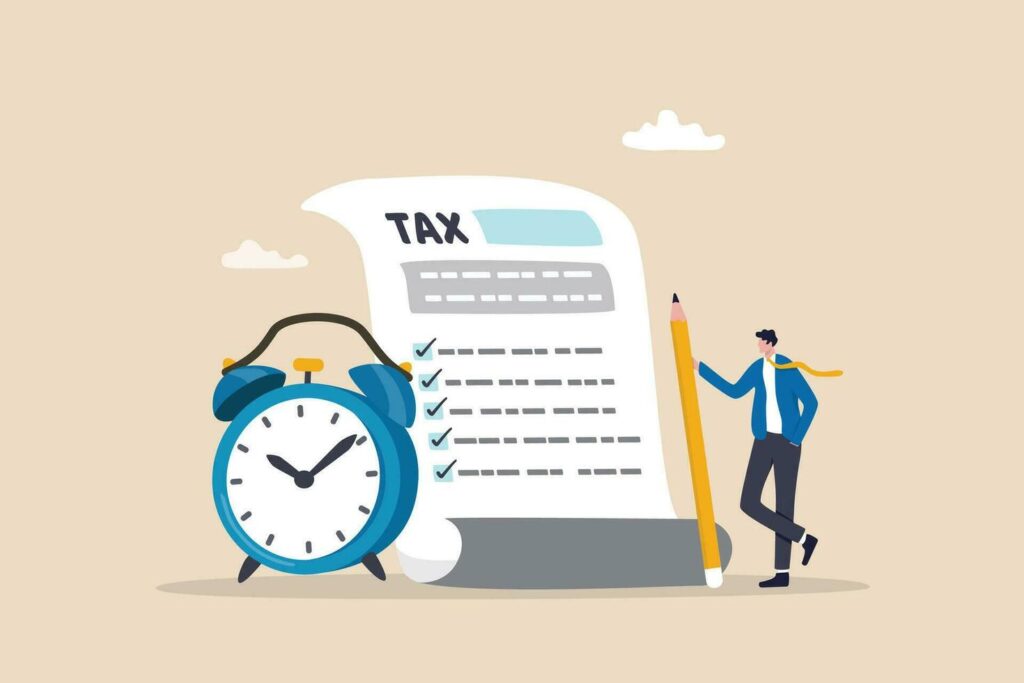In today’s complex financial landscape, proactive tax planning is crucial for individuals and businesses alike. By taking a proactive approach to tax planning, you can maximize your returns and minimize the stress associated with tax season. Understanding the basics of tax planning is the first step towards harnessing the power of proactive tax planning.
Understanding Proactive Tax Planning
Tax planning involves analyzing your financial situation and making strategic decisions to legally reduce your tax liability. By being proactive in your tax planning efforts, you can take advantage of tax-saving opportunities and optimize your financial position.
When it comes to tax planning, knowledge is power. Understanding the tax laws and regulations that apply to you is essential. This includes knowing what income is taxable, what deductions are available to you, and what credits you may qualify for. By understanding the basics of tax planning, you can make informed decisions that minimize your tax liability.
But tax planning goes beyond just understanding the basics. It requires a comprehensive approach that takes into account your specific financial situation and goals. This means considering factors such as your income sources, investments, business activities, and potential changes in tax laws.
SEE ALSO: Future-Proofing Your Retirement

One important aspect of proactive tax planning is staying up to date with the latest tax regulations and changes. Tax laws are constantly evolving, and what may have been a tax-saving strategy in the past may no longer be applicable. By staying informed, you can ensure that your tax planning strategies are always aligned with the current tax landscape.
Another key element of proactive tax planning is careful record-keeping. Keeping organized and accurate records of your income, expenses, and deductions is crucial for maximizing your tax savings. This includes maintaining receipts, invoices, and other relevant documents that support your tax deductions and credits.
Proactive tax planning also involves considering the timing of your financial transactions. By strategically timing your income and expenses, you can optimize your tax situation. For example, if you expect your income to be higher in the current year compared to the next, you may want to defer income or accelerate deductions to reduce your taxable income for the higher-income year.
Additionally, proactive tax planning can help you identify potential tax credits and incentives that you may qualify for. These credits can significantly reduce your tax liability and put more money back in your pocket. Examples of tax credits include the Child Tax Credit, Earned Income Tax Credit, and the American Opportunity Credit for education expenses.
By taking a proactive approach to tax planning, you can also ensure that you are in compliance with all tax laws and regulations. This reduces the risk of facing penalties or audits from tax authorities. Proactively reviewing your tax situation and seeking professional advice when needed can help you navigate the complex tax landscape and avoid potential pitfalls.
In conclusion, proactive tax planning is a crucial aspect of managing your finances effectively. By understanding the basics of tax planning, staying informed about tax laws, keeping accurate records, and strategically timing your financial transactions, you can optimize your tax position and minimize your tax liability. Taking a proactive approach to tax planning not only saves you money but also provides peace of mind knowing that you are in control of your financial future.
The Role of Proactive Tax Planning in Maximizing Returns
Maximizing your tax returns is a top priority for many individuals and businesses. With proactive tax planning, you can implement strategies to legally minimize your tax liability and increase your returns.
Proactive tax planning involves taking a proactive approach to managing your tax obligations. It goes beyond simply filing your tax returns and instead focuses on developing a comprehensive strategy to minimize your tax liability. By staying ahead of the game and planning ahead, you can take advantage of various tax-saving opportunities and ensure that you are making the most of your financial resources.
Strategies for Increasing Your Tax Returns
There are several strategies you can employ to increase your tax returns. One common strategy is to optimize your deductions. By carefully tracking your expenses and documenting eligible deductions, you can maximize your tax savings. This includes deductions for business expenses, medical expenses, and even charitable contributions. By keeping detailed records and staying organized, you can ensure that you are claiming all the deductions you are entitled to.
Another strategy for increasing your tax returns is to take advantage of tax credits. Unlike deductions, which reduce your taxable income, tax credits provide a dollar-for-dollar reduction in your tax liability. This means that if you qualify for a tax credit, it directly reduces the amount of tax you owe. Some common tax credits include the Child Tax Credit, the Earned Income Tax Credit, and the American Opportunity Credit for education expenses. By understanding the various tax credits available to you, you can optimize your tax planning strategy and maximize your returns.
Contributing to tax-advantaged retirement accounts, such as IRAs and 401(k)s, can also result in significant tax savings. These accounts offer tax advantages such as tax-deferred growth or tax-free withdrawals in retirement. By contributing to these accounts, you not only save for your future but also reduce your taxable income in the present, potentially lowering your tax liability and increasing your returns.

The Impact of Tax Deductions and Credits
Tax deductions and credits can have a significant impact on your overall tax liability. Deductions reduce your taxable income, while credits provide a dollar-for-dollar reduction in your tax liability. By understanding the deductions and credits available to you, you can optimize your tax planning strategy and maximize your returns.
For example, if you are a small business owner, you may be eligible for various deductions related to your business expenses. These deductions can include office rent, utilities, equipment purchases, and even business travel expenses. By carefully tracking and documenting these expenses, you can reduce your taxable income and potentially increase your tax returns.
Similarly, tax credits can provide substantial savings. For instance, if you have children, you may be eligible for the Child Tax Credit, which can provide a significant reduction in your tax liability. Additionally, if you are pursuing higher education, the American Opportunity Credit can help offset the costs of tuition and related expenses. By taking advantage of these credits, you can not only reduce your tax liability but also increase your overall returns.
In conclusion, proactive tax planning plays a crucial role in maximizing your returns. By employing strategies such as optimizing deductions, utilizing tax credits, and contributing to tax-advantaged retirement accounts, you can legally minimize your tax liability and increase your tax returns. Understanding the impact of tax deductions and credits is essential in developing an effective tax planning strategy. By staying informed and seeking professional advice if needed, you can make the most of your financial resources and achieve your tax goals.
Minimizing Stress Through Proactive Tax Planning
Tax season can be a stressful time for many individuals and businesses. The looming deadline, the fear of making mistakes, and the pressure of gathering all the necessary documents can create a sense of unease. However, by taking a proactive approach to tax planning, you can minimize the stress associated with tax season and gain peace of mind.
Proactive tax planning involves staying organized throughout the year and staying on top of your tax planning needs. By doing so, you can avoid the last-minute scramble to gather your documents and file your return. Instead of feeling overwhelmed, you can approach tax season with confidence, knowing that you have everything in order.
Avoiding Last-Minute Tax Panic
One of the most significant sources of stress during tax season is the feeling of being unprepared. When you leave your tax planning to the last minute, you may find yourself rushing to gather all the necessary paperwork, searching for missing receipts, and trying to make sense of your financial records. This can lead to unnecessary stress and increase the chances of making errors on your tax return.
By taking a proactive approach to tax planning, you can avoid this last-minute panic. Start by creating a system to organize your financial documents throughout the year. Keep track of your income, expenses, and deductions in a spreadsheet or accounting software. This way, when tax season arrives, you’ll have all the information you need at your fingertips.
Another way to minimize last-minute tax panic is to stay informed about changes in tax laws and regulations. By staying up to date, you can anticipate any potential impacts on your tax situation and make necessary adjustments in advance. This proactive approach will not only reduce stress but also help you maximize your tax savings.

The Benefits of Year-Round Tax Planning
Tax planning shouldn’t be a once-a-year event. While it’s essential to focus on your taxes during the filing season, engaging in year-round tax planning can bring significant benefits. By regularly reviewing your financial situation and adjusting your tax planning strategy as needed, you can stay ahead of the game and minimize stress.
One of the primary benefits of year-round tax planning is the ability to make strategic financial decisions that maximize your tax savings. By keeping a close eye on your income, expenses, and investments throughout the year, you can identify opportunities to reduce your tax liability. This could involve taking advantage of tax deductions, contributing to retirement accounts, or making strategic business decisions.
Furthermore, year-round tax planning allows you to identify potential tax issues before they become significant problems. By regularly reviewing your financial records, you can spot any discrepancies or errors and take corrective action promptly. This proactive approach can save you from the stress and potential penalties of dealing with tax problems down the road.
In conclusion, proactive tax planning is a powerful tool for minimizing stress during tax season. By staying organized, avoiding last-minute panic, and engaging in year-round tax planning, you can approach tax season with confidence and peace of mind. So start taking proactive steps today and experience a smoother and less stressful tax season.
Implementing Proactive Tax Planning
Implementing proactive tax planning requires careful thought and consideration. By following some key tips and seeking professional assistance when needed, you can ensure a successful tax planning journey.
Tips for Successful Tax Planning
Start early. Don’t wait until tax season is upon you to start thinking about your taxes. Take a proactive approach by reviewing your financial situation throughout the year and making informed decisions. Additionally, staying organized and keeping detailed records will make the tax planning process much smoother.
Seeking Professional Tax Planning Assistance
In some cases, seeking professional assistance may be necessary to navigate the complexities of tax planning. Tax professionals have the knowledge and expertise to guide you through the process and help you make strategic decisions that maximize your returns and minimize stress. Consider consulting with a certified public accountant or tax attorney to ensure you’re taking full advantage of all available tax-saving opportunities.
In conclusion, proactive tax planning is a powerful tool for maximizing returns and minimizing stress. By understanding the basics of tax planning, implementing strategies to increase returns, and staying organized and proactive throughout the year, individuals and businesses can optimize their financial position and make tax season a less stressful experience.

